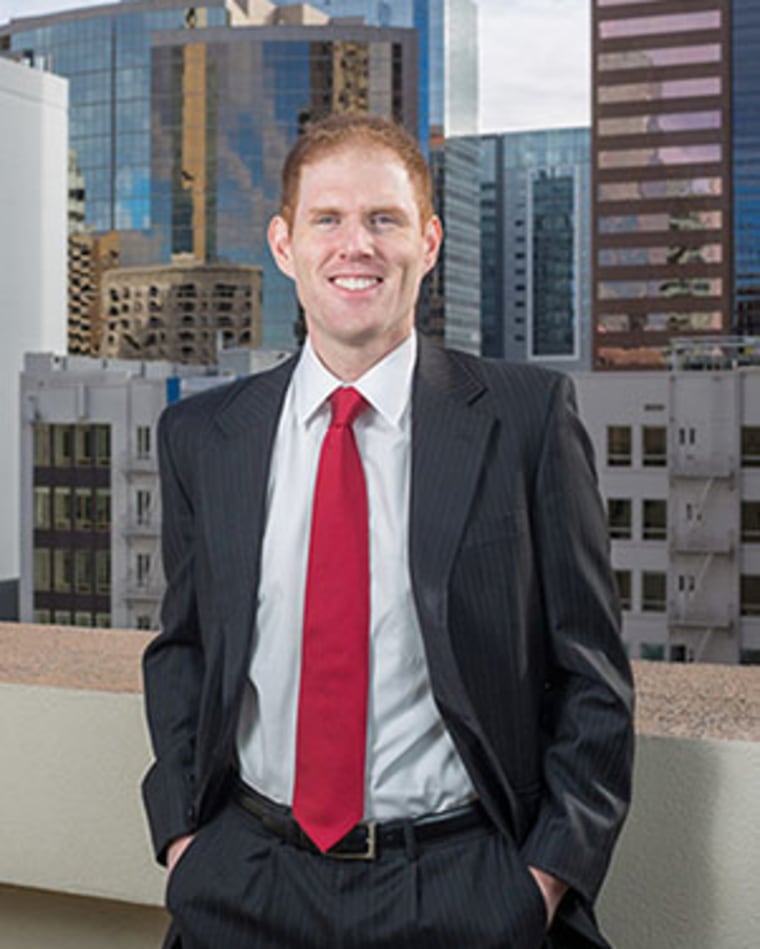How one election official is trying to stop 2024 conspiracy theories before they start
PHOENIX — Operating a swing-state election office in 2023 requires not just attention to detail, but also fortitude — and in the case of Maricopa County, Arizona, Recorder Stephen Richer, an enormous amount of caffeine.
“Yes, I am a Diet Coke addict — a living, walking experiment,” he told NBC News. “I probably drink north of 100 ounces every single day.”
There have been a lot of long days for Richer since he took over a key election post in Arizona’s largest county — and the biggest swing-state county in the nation — at the start of 2021, thanks in part to online harassment, physical threats and a nonstop stream of baseless conspiracy theories about Maricopa County’s 2020 election results.
But he has also poured countless hours into improving both the efficiency and transparency around his vote counting operation, with the hopes of restoring trust in Arizona’s elections and preventing the next set of conspiracies from taking root.

Richer, 38, says faster vote counting will produce more-trusted vote counting.
“Knowing the results within a certain period is something that can help boost confidence,” he said, drawing a straight line from Arizona’s long 2020 and 2022 counts to dozens of conspiracy theories that permeated the electorate afterward.
State law prohibits Arizona election officials from processing mail ballots dropped off on Election Day until after the polls close that day, and hundreds of thousands of Arizonans vote that way each year.
Those ballots cannot be fed straight into tabulators, as the signatures on their envelopes must first be verified by election workers. It’s a much more drawn-out process than the simple tabulation of ballots cast at the polls on Election Day.
Richer has proposed a series of reforms ahead of the 2024 election — ranging from what many consider common-sense to more controversial proposals. Most of the ideas were developed with the intention of projecting Arizona’s election winners faster. But his ideas could speed up election projections in other states with slow-counting reputations, too.
Three of Richer’s proposals that could drastically speed up vote tabulations: Ending the practice of allowing Election Day drop-off of mail ballots; allowing officials to process mail ballots faster; and being more aggressive about disqualifying ballots on which voters may have made minor mistakes. Right now, election workers try to adjudicate their intent — and voters have a window of opportunity after the election to “cure” the ballot, too.
“I would just like to reconfigure the system such that we’re able to have a higher percentage within the first 24 hours,” he said of Maricopa’s vote totals, which typically represent more than 60% of all ballots cast in the state.
Even though Richer says Arizona counts ballots faster than most other Western states, it remains a perfect storm for a long-drawn-out election week. Approximately 90% of Arizona voters cast ballots by mail, and almost 20% of that group uses the Election Day drop-off option that slows down the tabulation process.
Add in that Arizona consistently has some of the closest statewide elections in the entire country, and it’s a recipe for a long and uncertain post-election wait for observers.
“Utah is an all-mail state; California is an all-mail state … [but] I can tell you right now who’s going to win in Utah and California: the Republican in Utah; the Democrat in California,” Richer said.
NBC News did not project a winner in Arizona’s 2022 or 2020 Senate races until three days after the polls closed. In 2018, it took six days for the network to project a winner.
Richer didn’t get much cooperation from the Arizona Legislature this year — conspiracy-promoting Republicans in the Legislature have been at war for years now with him and other Republican Maricopa County officials who defend the county’s elections.
Instead, Richer has tried to speed up Maricopa County’s reporting process — and increase opportunities for the public to monitor it — from the inside without rule changes.
New windows and cameras have been installed for observers to watch ballot tabulation, adjudication and storage, and excess wiring has been removed so observers can see no tabulation device is connected to the internet. Richer has also had new security boxes installed around computer towers so no USB devices can be plugged in. And on top of that, new security cages and keypads have been installed so logs are recorded anytime anyone accesses sensitive equipment or materials.
Maricopa County also significantly fortified security measures around its facilities, even before a series of suspicious letters, including one that tested positive for fentanyl, were sent to other election officials around the country last week — a threat the FBI is investigating.
Richer has also encouraged observers to livestream multiple security camera views of Maricopa County’s election center and drop box locations.
“I believe that we have contributed in a positive way to the conversation about American democracy, which Arizona has had an outsized role,” he said. “That’s exciting.”
Richer has also floated one long shot idea he thinks could improve elections: slow the rest of the country’s reporting down to Arizona’s speed.
In this scenario, “nobody releases results until maybe five days after Election Day,” he said. “Because a lot of states have a lot of different policies.”
Richer admitted the idea stood no chance of happening anytime soon.
“My real goal here: let’s at least have a conversation.”

